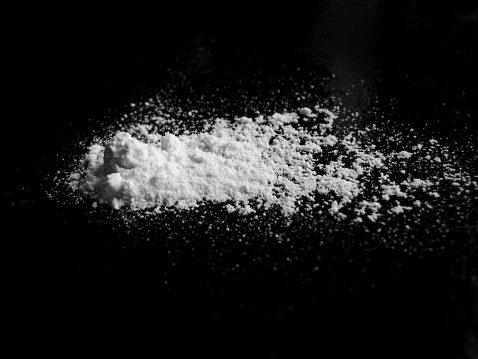Washington, D.C.— The U.S. Food and Drug Administration(FDA) has sent out warning letters to five companies selling pure powdered caffeine, stating that “these products are dangerous and present a significant or unreasonable risk of illness or injury to consumers.”Not regarded as a proper dietary supplement in the natural products industry, powdered caffeine has marketed as a dietary supplement by these and other companies, generally targeted towards energy and weight management applications. It was this fact, along with the fact that these particular powders were synthetic and being sold in bulk that triggered the warning letters.
One of the major points emphasized in the warning letters was emphasis on the labels for certain specific serving size measurements, many of which wouldn’t be feasible to properly measure out with household tools. For example, one of the five products mentioned specified a serving size of 200 mg, adding that “a milligram scale for measurement” should be used. FDA explained that this was approximately the equivalent of 1/14 of a teaspoon, and that “This amount cannot be accurately measured using common household measuring tools. Many consumers do not have a scale that is sufficiently precise to accurately measure such a small amount.” In a constituent update regarding the warning letter, FDA explained that one teaspoon of pure powdered caffeine is the equivalent to the content in 24 cups of coffee, and that taking improper dosages of these products can lead to a wide spread of potentially dangerous health issues. The update also said that FDA “will continue to aggressively monitor the marketplace for pure powdered caffeine products and take action as appropriate.”
Several trade organizations have expressed their support of FDA’s actions. In a statement, Rend Al-Mondhiry, regulatory counsel at the Council of Responsible Nutrition (CRN), said that “We have been, and continue to be, supportive of FDA’s efforts in this area to educate consumers about the potential dangers of pure powdered caffeine.”CRN has also recently updated its voluntary guidelines for caffeine-containing products, and while they don’t place limits on bulk caffeine being sold in business to business transactions, they do advise not selling these same bulk items to consumers.
Daniel Fabricant, Ph.D., executive director and CEO of the Natural Products Association (NPA), says that his organization understands the concerns over powdered caffeine, but believes that FDA is taking action on the wrong aspect of the issue. “While we understand the concerns surrounding powdered caffeine, the FDA is missing its target by claiming the product is dangerous because it can’t be measured, not that the product is dangerous,” he said in a statement from NPA. He also expressed concern over “the FDA’s decision to base its actions on anecdotal evidence in place of sound science and empirical consumer data.” Fabricant added that his organization would continue to work towards educating consumers so they have confidence in the safety of their vitamins and supplements.
Published in WholeFoods Magazine, October 2015 (online 9/1/2015)










